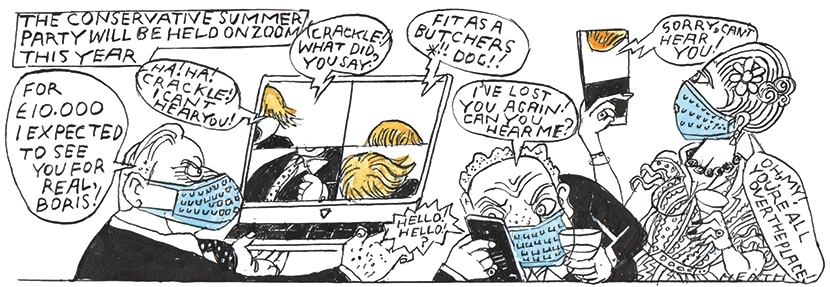Home
A coronavirus vaccine developed by the University of Oxford, tested on 1,077 people, was found to induce antibodies and T-cells that could fight the virus. Boris Johnson, the Prime Minister, said he hoped for a ‘significant return to normality from November, at the earliest, possibly in time for Christmas’. At the beginning of the week, Sunday 19 July, total deaths from Covid-19 stood at 45,273, with a seven-day average of 68 deaths a day. But Professor Carl Heneghan of Oxford University discovered that anyone who had tested positive for coronavirus but died later of another cause was included in the Public Health England figures. The Queen knighted Captain Sir Thomas Moore, aged 100, on the grass of Upper Ward in Windsor Castle.
Britain suspended its extradition treaty with Hong Kong; Dominic Raab, the Foreign Secretary, told parliament that China’s imposition of security laws was a ‘serious violation’ of Hong Kong’s international obligations. On a two-day visit, Mike Pompeo, the US Secretary of State, said that Britain was right to end 5G plans for Huawei: ‘I think that decision was made not because the US said it was a good decision.’ A report called ‘Russia’ (held back since before the general election in December) by MPs and peers on the Intelligence and Security Committee concluded that ‘Russia’s cyber capability, when combined with its willingness to deploy it in a malicious capacity, is a matter of grave concern’. The government ‘had not seen or sought evidence of successful interference in UK democratic processes’ including the 2016 Brexit referendum. The report came out six days after the Conservative whip was withdrawn from Julian Lewis, who had persuaded opposition MPs to elect him chairman of the Intelligence and Security Committee, which the government wanted for Chris Grayling.








Comments
Join the debate for just £1 a month
Be part of the conversation with other Spectator readers by getting your first three months for £3.
UNLOCK ACCESS Just £1 a monthAlready a subscriber? Log in